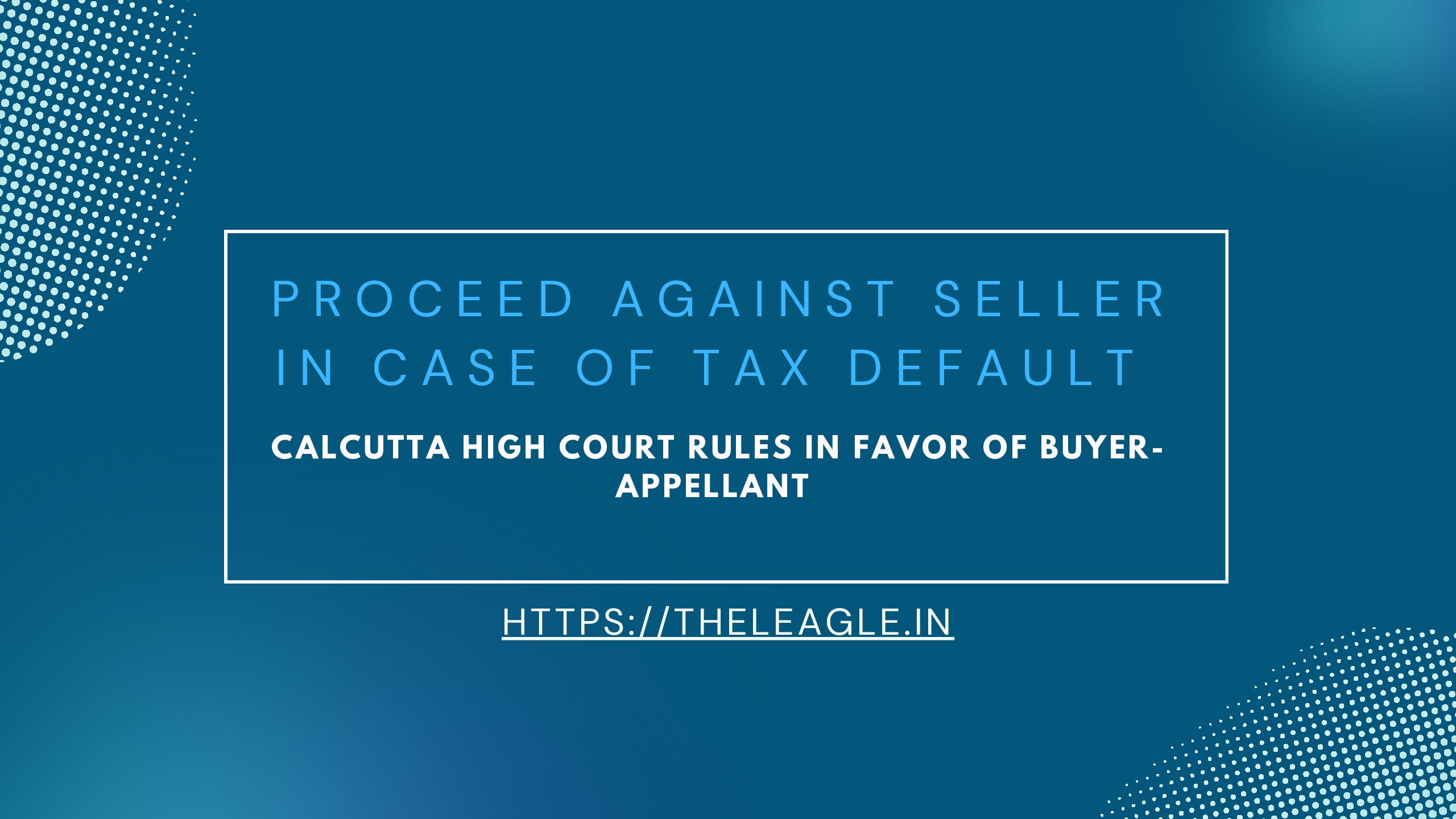In a recent judgment[1], the Calcutta High Court gave a detailed opinion on the nature and role of some of the tax returns, specifically, GSTR-2A, that taxpayers are required to file under GST. And in the process provided some clarity on who bears the burden – buyer or supplier – for paying taxes to the State in case of errors in the relevant tax returns.
Introduction
The appellant purchased certain goods and services from its supplier and paid GST on the supplies. However, some of the invoices of the supplier were not reflected in GSTR-2A of the appellant for the Financial Year 2017-18. It is important to state here that GSTR-2A is an auto-drafted statement that is generated for each taxpayer based on their supplier’s data and provides the taxpayer ITC-related information. When a taxpayer files their monthly summary under GSTR-3B, it is important for them to reconcile ITC and other data with their GSTR-2A. Thus, any error/mistake in the GSTR-2A generated by a taxpayer’s supplier could affect the ITC claims of a taxpayer.
In the impugned case, the appellant was served notice for recovery of input tax credit (‘ITC’) availed and was eventually the ITC of the appellant was reversed. The ground for reversal of ITC was mismatch in the taxpayer’s GSTR-2A and GSTR-3B. The appellant defended the mismatch under GSTR-2A with GSTR-3B by arguing that its transactions with the supplier were genuine and were not reflected in GSTR-2A due to the supplier’s error. However, the notice was adjudicated and penalty along with interest were determined under Section 73(10), CGST Act, 2017. The appellant approached the Calcutta High Court against the order with its main grievance being that proceedings cannot be initiated against it without conducting any enquiry or effecting any recovery from the supplier.
In other words, if the supplier had not paid GST to the State – erroneously or otherwise – then the Revenue should proceed against the supplier and not reverse the appellant’s ITC. The issue was of attributing responsibility for the GST on the transactions in question. The Calcutta High Court adjudicated on the issue by inter alia stating the importance and role of the relevant tax returns under GST.
High Court Adjudicates in Favor of Taxpayer
The appellant’s arguments were reliant on Section 16, CGST Act, 2017 and CBIC Press Releases dated 4.05.2018 and 18.10.2018. The appellant argued that they had fulfilled all the statutory conditions to avail ITC as prescribed under Section 16(2) and they cited CBIC’s Press Releases to emphasise that GSTR-2A was for the purpose of taxpayer facilitation/information and did not impact the ability of a taxpayer to claim ITC on a self-assessment basis. In other words, as long as the taxpayer was fulfilling the statutory conditions prescribed under Sec 16, CGST Act, 2017 discrepancies in GSTR-2A should not affect its ability to claim ITC.
The appellant further placed emphasis on Bharti Airtel judgment[2] of the Supreme Court to underline the nature of GSTR-2A and that it was de-linked with GSTR-3B. The Supreme Court in the Bharti Airtel judgment has held that GSTR-2A and the common electronic portal acts as enablers and facilitators for claiming ITC on self-assessment basis and the conditions to claim ITC under Section 16, CGST Act, 2017 were termed as crucial and substantive. Equally crucially, the appellant relied on Arise Limited case[3] where the issue for consideration was whether the purchasing dealer should be made liable for the default committed by selling dealer and the Delhi High Court had held that bona fide purchaser under a transaction with a registered seller should not be made responsible for seller’s default unless collusion between purchaser and seller is established by the Revenue.
The Calcutta High Court accepted all the arguments of the appellant including the fact that the appellant possessed the invoice and the bank statement to prove that they had bought the goods from the supplier and the transactions in question were genuine transactions.
Conclusion
The Calcutta High Court’s judgment wherein it directed the Revenue to first proceed against the supplier and only in exceptional circumstance proceed against the appellant is a welcome development. It only reiterates what should be the default position under GST laws as far tax defaults are concerned. Unless collusion or fraud is established or a prima facie case for the same is made, the Revenue should not deny ITC or reverse ITC of the purchaser in case of tax default by the supplier. This is the desirable position of law and should be the law as followed in practice.
[1] Suncraft Energy Pvt Ltd v The Assistant Commissioner, State Tax, Ballygunge (2023) 8 TMI 174.
[2] Union of India v Bharti Airtel Ltd and Ors 2021 SCC OnLine SC 1006.
[3] Arise India Ltd v Commissioner of Trade and Taxes, Delhi and Ors MANU/DE/3361/2017.
